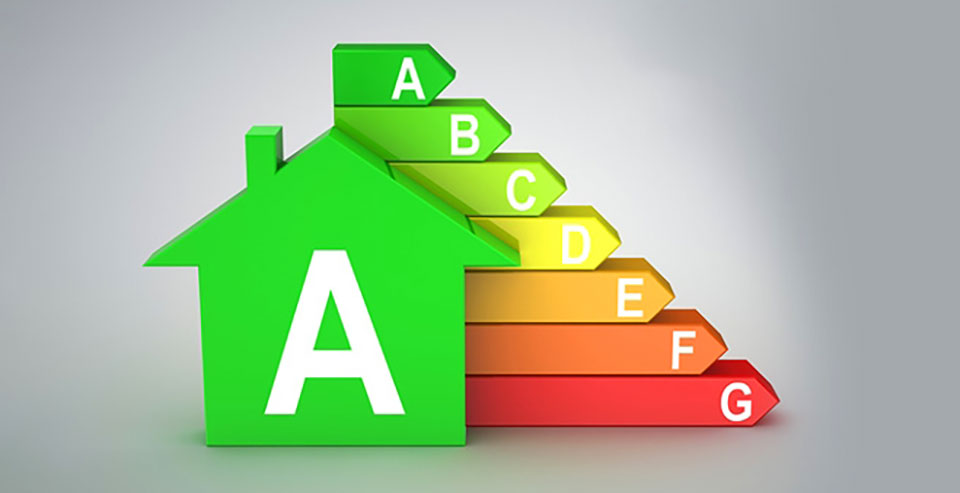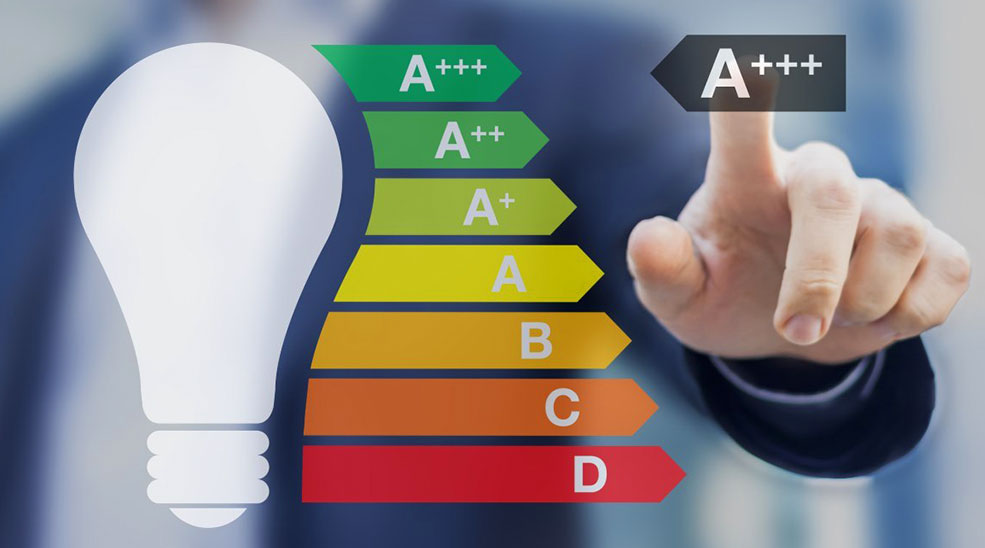

The Energy Efficiency Law No. 2007 was enacted in 5627 by the Ministry of Energy and Natural Resources. The main objectives of this law are:

Due to the use of energy based on completely non-renewable (fossil) resources, resources are now at the point of exhaustion. According to calculations, it is foreseen that oil resources will be exhausted within 100 years at the latest. Therefore, renewable energy sources are emphasized today and new technologies are being studied in this direction.
On the other hand, the fact that the available energy resources can be used for a longer period is the biggest responsibility of today's people towards future generations. Therefore, new regulations are made in our country and in the world for energy saving and effective use of energy. The above-mentioned law and the Energy Performance Regulation in Buildings issued in 2008 based on this law are a result of these efforts. The regulation in question regulates the procedures and principles regarding:
According to the regulation, the energy identity document is a document covering information on the energy needs of buildings and energy consumption classification, insulation properties and efficient operation of heating and cooling systems. This document may be issued by natural or legal persons authorized by the Ministry of Public Works and Settlement.
According to the announcement made by the Ministry of Energy and Natural Resources within the framework of these legal regulations, as of January 1, 2020, the condition of issuing an energy identity document will be sought in the purchase and sale and lease of buildings or independent sections. During these transactions, the owner is obliged to give a copy of the issued energy identification document to the lessee or the buyer.
The Energy Identity Document (EKB) application that came to the agenda with the Energy Efficiency Law No. 5627 is a document showing the energy performance of the buildings in order to use energy sources and energy effectively and efficiently and to prevent energy losses.
The main factors that cause energy losses in buildings and negatively affect energy performance are the efficiency of the heating and cooling systems and insulation problems. Energy class values on the Energy Identity Document will be higher in the buildings, where the jacketing (insulation) process is applied. Again, if devices that use less energy are used in heating and cooling systems, the values on the Energy Identity Certificate will increase.
Briefly Energy Identity Document (EKB)is a system that measures and classifies energy efficiency in buildings in order to increase energy efficiency and protect the environment and can be regulated by organizations and legal entities authorized by the Ministry of Public Works and Settlement.
The procedure for the issuance of the Energy Identity Certificate before the buildings constructed before January 1, 2011 and the new buildings that have been granted a building permit after this date is different in terms of authorized institutions. Namely,
In case of failure to comply with the Energy Performance Regulations in the buildings, the building use permit is not issued by the relevant official institution until the deficiencies determined are eliminated.
The Energy Identity Document (EKB) is an official document proving that energy sources and energy are used effectively and efficiently and showing the energy performance values of the buildings. On this document, the building's energy consumption class, carbon dioxide emission class, renewable energy class, heating energy consumption class, sanitary hot water energy class, cooling energy consumption class, ventilation energy class and lighting energy class.
Each of this classification is rated from A energy class to G energy class depending on their performance. The class that uses energy most efficiently and effectively is the class A, whereas the class that uses energy at the lowest level is the G class. The legal regulations regarding the classification are the Energy Efficiency Law No. 2007 dated 5627 and the Energy Performance Regulation in Buildings dated 2008 issued based on this law. A change was made to the mentioned regulation in 2017.
Except for the exceptions included in the legal regulations, all buildings must have an Energy Identity Certificate (EKB). For buildings that no longer have an Energy Identity Certificate, a building use permit is not issued by the relevant institutions. Therefore, this document must be submitted during the buying, selling and leasing of all buildings. The Energy Identity Certificate must be obtained for all types of buildings, such as residences, apartments, government buildings, commercial buildings, offices and service buildings.
The Energy Identity Certificate application has been implemented since January 1, 2020. For this reason, this document will be required for all trading and leasing transactions. The validity period of the Energy Identity Certificate received is 10 years. At the end of this period, the document needs to be renewed. Also, if any changes are made that affect the building's energy performance during this period, the certificate must be renewed within 1 year.
In the fifth section of the Energy Efficiency Law No. 5627, administrative sanctions and various provisions have been regulated. Accordingly, administrative sanctions to be applied as a result of inspections by institutions authorized to impose administrative fines are regulated in the tenth article. The amount of administrative fines to be applied is announced each year by a notification published in the Official Gazette by the Ministry of Energy and Natural Resources. The situations requiring fines according to the law and the penalty figures announced for 2019 are as follows:
Except for the subtitle 9 above, in case the situation requiring administrative fines is repeated once more in the following year, the administrative fines announced are doubled.
There are two basic legal regulations regulating the Energy Identity Document (EKB) implementation. The first of these is the Energy Efficiency Law No. 2007, published in 5627. The other is the Energy Performance Regulation in Buildings, 2008, based on this law.

In terms of the implementation of these legal regulations, all buildings such as residences, apartments, official buildings, commercial buildings, offices and service buildings are defined as existing buildings and new buildings. The date taken as basis here is January 1, 2011. All buildings with a construction license before this date are considered as existing buildings, and buildings that have been built after this date and have been granted a construction license are considered as new buildings.
Defining the buildings in this way as existing buildings and new buildings is important in terms of determining the authorized institution that will issue Energy Identity Certificate. Organizations that have the authority to issue documents for existing buildings are consultancy firms with employees who have received Energy Identity Certificate training, have been authorized in the building category within the framework of the Energy Efficiency Law and have the necessary measurement equipment. However, the newly constructed institutions that have the authority to issue documents for the buildings to be constructed from now on, architects, engineers and engineers who have received the Energy Identity Certificate training training and who have organized a Freelance Consultant Engineering (SMM) certificate organized by the relevant professional chambers affiliated to the Union of Chambers of Turkish Engineers and Architects. are organizations that employ employees with qualifications.
The Energy Identity Certificate application covers all the buildings used as residential and workplace in our country and as of January 1, 2020 this document has been made compulsory. As of this date, the purchase and sale and rental transactions of the buildings without Energy Identity Certificate will not be possible.
With the application, the perception of using energy efficiently and saving energy will be widespread in order to transfer the limited energy resources to future generations.
One of the two main legal regulations regulating the Energy Identity Certificate (EKB) application is the Energy Performance Regulation in Buildings dated 5627, based on the Energy Efficiency Law No. 2008.
The aim of the Energy Performance Regulation in Buildings is to ensure the efficient and efficient use of energy and energy resources in buildings, to prevent waste of energy and to protect the natural environment. The regulation in question regulates the procedures and principles for these purposes.
Energy Identity Document (EKB), energy requirement and energy consumption classification of buildings such as residential, apartment, official building, commercial building, office and service building, heating and cooling systems, ventilation systems, sanitary hot water system, cogeneration system (if any, electricity and heat to use energy more efficiently) is a document that contains information about the efficiency of systems such as the technology that enables the production of energy together and the photovoltaic system (i.e. the technology of converting solar energy into electric current).
The Energy Identity Document (EKB) has been made compulsory in all buildings as of January 1, 2020. This application is of great importance in terms of heat efficiency and energy efficiency measurement in buildings. When purchasing or renting a new home, it will be an important criterion for the house to have an Energy Identity Certificate as well as the interior design and location.
Unfortunately, fraud is done in this regard, as in every case. There are many fake Energy Identity Certificates in the market today. In fact, buildings with low class energy identity are certified as if they are high class.
For this reason, it is necessary to pay attention to whether the Energy Identity Certificate is a counterfeit or not when looking for a high energy performance of the building when buying or renting a new home. If it is understood that the document is forged in the inspections to be made, the document is immediately canceled and the organization that issued this document is given penalties ranging from prison terms.
There is no minimum class value required for existing buildings. However, it should be at the lowest C value for new buildings. The Energy Identity Certificate application is an application designed and made compulsory for buildings to consume energy in an environmentally friendly manner. This application is valid for all old (existing) and new buildings.
On the basis of certain categories on this document, it is important to determine whether the buildings such as residences, apartments, official buildings, commercial buildings, offices and service buildings are harming the environment for all kinds of energy needs. Certain categories evaluated are: energy consumption class, carbon dioxide emission class, renewable energy class, heating energy consumption class, sanitary hot water energy consumption class, cooling energy consumption class, ventilation energy consumption class and lighting energy consumption class.
The energy consumption class shows the value of an electrical device on an annual energy consumption basis and consists of seven groups. Class A is the lowest energy consumption class. An electrical device entering this class consumes 45 percent less energy than the average energy consumption. Class G is the highest consumption class, and an electrical appliance that enters this class consumes 25 percent more energy than average energy consumption.
Using energy efficiently and effectively has become much more important now. Wasting energy causes economic losses. However, the only concern is not economic. Most of the energy used is obtained from a fossil source, and harmful gases emitted to the environment during use are of a size that will lead to climate change and global disaster.
Turning towards nature-friendly energy sources has become an imperative for a more livable world. For this, first of all, it is necessary to use the energy that is owned efficiently and do more work with the same energy.
To get an appointment, to get more detailed information or to request an evaluation, you can ask us to fill in our form and reach you.